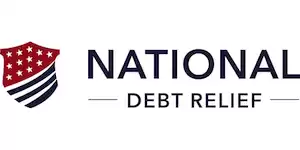Do you need a debt-free guide in your life? Debt or credit is something that has penetrated into all our lives and a good part of the population is consumed by it.
The financial world doesn’t operate without debt and most of our lives revolves around finance. So, in a highly finance-centered world like this one, how do you manage to stay a hundred percent debt free?
If you are currently in debt and want to utilize these tips, then I’ll outline what you need to do in order to become debt free.
For starters, you need to make a decision to break bad financial habits and have the commitment to stand by it.
Once your priorities are set straight, then nothing is impossible. Next what you need is a plan of action to pay off debt fast. And it should go something like this:
Do These Things to Experience Debt-Free Living
1. Get those bills out
The sight of mounting bills can be overwhelming, but it’s time to take control. Start by gathering your bills and listing your debts from smallest to largest. Then, create a second list ranking them by interest rates, from highest to lowest.
Now that you have a clear picture of your debt, prioritize paying off the high-interest balances, like credit card debt. Tackling these first will save you the most money in the long run.
But what if you could simplify this process and save even more? That’s where Rocket Money comes in. Rocket Money is a budgeting app designed to help you reduce expenses and manage your debt. While there is a cost for premium features, it’s an investment that can pay off significantly.
Here’s how Rocket Money can help you save and make progress on your debt:
- Bill Negotiation: Rocket Money works to lower your recurring bills, like cable, internet, and cell phone plans, potentially saving you hundreds of dollars a year.
- Subscription Management: The app identifies subscriptions you may have forgotten about and allows you to cancel them easily, freeing up money for debt repayment.
- Budget Tracking: Rocket Money analyzes your spending habits and helps you create a realistic budget to stay on track.
- Debt Insights: With a clear view of your financial picture, Rocket Money can help you prioritize paying off your most expensive debts first.
While some features of Rocket Money are free, the premium version offers tools like automated bill negotiation and in-depth spending reports, making it well worth the cost for those serious about paying off debt. Many users find that the savings they gain from Rocket Money far exceed the subscription fee.
By using Rocket Money, you can turn financial chaos into clarity and take actionable steps toward financial freedom.
Over 3 Million Users Trust Rocket Money
Rocket Money
4.8
Let Rocket Money lower your bills and put money back in your pocket — no upfront fees, no hassle
- Helps lower your internet, phone, and cable bills automatically
- Trusted by over 5 million users to cut monthly expenses
- Contacts providers to find discounts and hidden savings
- Saves users an average of $300 per year
- Charges no upfront fees — you only pay if they save you money (40% of the savings)
- Tracks and cancels unused subscriptions effortlessly
2. Plan for a rainy day

Building an emergency fund is one of the smartest financial moves you can make. When unexpected expenses arise—whether it’s a car repair, medical bill, or a sudden job loss—having cash on hand can keep you from relying on high-interest emergency loans or credit cards, which only add to your financial burden.
That said, your emergency fund shouldn’t stop you from addressing your debt. Striking the right balance is essential.
Here’s how to approach it:
- Start Small and Build Gradually: Begin with a realistic goal, like saving $500 or one month’s worth of essential expenses. This can cover minor emergencies without derailing your debt repayment efforts.
- Prioritize High-Interest Debt: While you’re building your fund, focus on paying down high-interest debts, such as credit cards, to avoid compounding costs.
- Aim for Six Months of Expenses: Over time, work toward saving enough to cover three to six months of living expenses. This financial cushion provides peace of mind and the flexibility to handle larger emergencies without scrambling for funds.
Having an emergency fund actually supports your debt repayment goals in the long run. With a financial safety net in place, you’ll be able to allocate extra money toward paying off debt instead of worrying about unexpected expenses.
The key is balance: work on reducing your debt while steadily building your emergency fund. This combination will help you create a more secure financial foundation and protect you from falling into deeper debt during tough times.
3. Make a budget and stick to it
Budgeting is the simplest way to dodge debt, but sticking to it is the real challenge. Here’s how to make it easy:
- List Your Essentials: Write down your income and basic expenses like rent, utilities, and groceries.
- Prioritize Debt: Dedicate a set amount to paying off debt every month—make it non-negotiable.
- Track Spending: Use a free budgeting tool or notebook to track where your money goes.
- Stay Motivated: Remind yourself: the faster you pay off debt, the sooner you’ll be free to spend on what you love.
- Add a Cushion: Budget a little extra for unexpected expenses so small surprises don’t derail you.
Stick to it, and you’ll see progress faster than you think. The sacrifices now are worth the freedom later!
4. Look for monthly minimum payment options

Too many creditors to deal with can become quite overwhelming. How about you swap all of them for one? There are many debt consolidation companies that can help you out with the cause.
Get a debt consolidation loan to pay off all the loans and then you can focus on paying off just this one loan. You only have to make one monthly payment and this, too, will be one simpler term than any other creditors. You just have to make sure you keep up with the monthly payments otherwise, you are back to square one.
If you are not sure where to start if you are considering consolidating your debt then you can check out Upgrade.
Upgrade offers some of the lowest interest rates on the market and flexible repayment terms, but the advantages associated with Upgrade go beyond the numbers. You can learn more about them here.
Upgrade
4.7
- Low Fixed Rates: Predictable and affordable repayments.
- Fast Funding: Receive funds as soon as the next business day.
- Flexible Loan Amounts: Borrow $1,000 to $50,000.
- No Hidden Fees: Transparent terms with no surprises.
5. Look into debt relief solutions

If your debt feels insurmountable and no amount of budgeting or cutting monthly expenses has been enough, it may be time to explore debt relief solutions. These options won’t necessarily eliminate your debt, but they can help you secure more manageable terms and get back on track.
For individuals in the United States, National Debt Relief is one of the leading and most trusted debt relief companies. They’ve helped thousands of Americans navigate challenging financial situations with personalized strategies, education, and exceptional customer service.
Here’s how National Debt Relief can help:
- Free Debt Analysis: National Debt Relief offers a complimentary, no-obligation debt analysis to evaluate your financial situation and identify the best options for managing your debt.
- Debt Negotiation: They work with your creditors to reduce the total amount you owe, often significantly lowering your overall debt.
- Affordable Payments: National Debt Relief creates a personalized repayment plan that fits your budget, making it easier to move toward financial freedom.
- Support and Guidance: Their experienced counselors are there to guide you every step of the way, helping you make informed decisions about your financial future.
Speaking to a debt counselor is a crucial first step. Their free debt analysis can give you a clear picture of your options and help you decide the best course of action based on your unique needs.
Don’t let debt define your future—reach out to National Debt Relief today and take the first step toward reclaiming control of your finances.
6. Sell what you don’t need

Decluttering your home can help declutter your finances too. If you have items you barely use, consider selling them for extra cash to put toward your debt. Popular platforms like Facebook Marketplace, Craigslist, eBay, and Amazon make selling easier than ever, or you can go old-school with a garage sale.
This quick influx of money can give your debt repayment efforts a significant boost while freeing up space in your home.
Pro Tip: Pair this strategy with a list of financial goals. Knowing exactly what you’re working toward—whether it’s paying off a specific debt or building an emergency fund—can keep you motivated and on track.
7. Working overtime may be an option

Once your debt situation is getting a little under control but isn’t completely there yet, then you may want to look into more money making ideas.
Cutting back on expenses can really help you save money but the figures you are dealing with aren’t that impressive. What may help is better employment that pays more for the same hours or a second job?
The thing is that you may not need to do this full-time or for a long time. You just need to log in some extra hours to make a little more money on the side while you are going through this process of clearing out your debt.
Ready to Become Debt Free?

So are you ready to beat debt and finally become debt free? One thing that you need to keep in mind is that the process of accumulating a large amount of debt was slow and so will the process of paying it off be.
Patience and motivation to achieve what you have decided are key. Once you have set your mind to it and made it your goal, then getting this status, or more like liberty, will not be a far-fetched dream.
Lastly, if you have large credit card debt piling up, consider using any of these strategies for reducing your credit card debt fast.
If you have any questions about the debt-free guide please leave a comment below!



